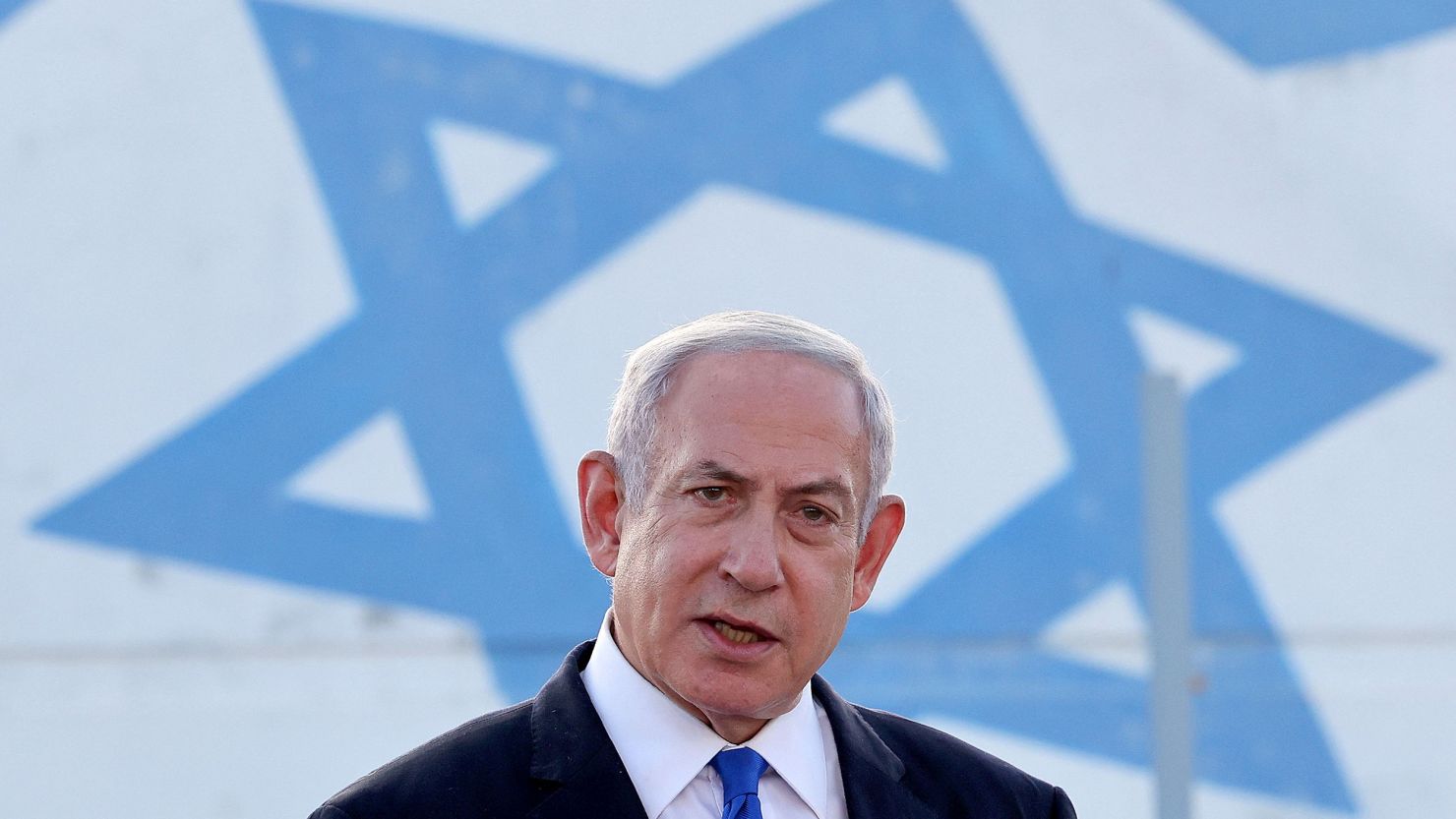Israel, aided by its allies, dodged a bullet Sunday.
To be more precise, 60 tons of explosives aboard more than 350 Iranian projectiles, some bigger than a family car, failed to dodge Israel’s defenses.
Yet Israel, in defiance of US President Joe Biden’s warnings to “take the win” and Iranian President Ebrahim Raisi’s threat of a “severe, extensive and painful” response to any retaliation, is contemplating just that.
Deterrence, shorthand for “meanest S.O.B. in the room,” Israel believes, is the cornerstone of its survival. Iran is stealing that brick.
In a paradigm shift after decades of shadow proxy war, Tehran is usurping Israel’s strategy. “We have decided to create a new equation,” Iran’s Islamic Revolutionary Guard Corps (IRGC) Commander Hossein Salami said. “We will retaliate against them [Israel].”
When faced with existential threats in the past, Israel has executed the most audacious raids the region has ever witnessed. Cloaked in extreme secrecy in 1981, they bombed Iraq’s nuclear reactor at Osirak before it went on line. Similarly, in 2007, they bombed Syrian dictator Bashar al Assad’s nuclear reactor before it could be built.
Both attacks partnered intelligence with conventional military assets. It was 11 years before Israel admitted to the Syria strike.
The point being, Israel won’t telegraph its plans as Iran did at the weekend,?in carrying out an unprecedented attack?in response to a suspected Israeli strike on the Iranian consulate in Damascus,?Syria, earlier this month.
Aside from the core members of Israel’s war cabinet – Prime Minister Benjamin Netanyahu, Defense Minister Yoav Gallant and Netanyahu’s former biggest political rival Benny Gantz – more than a dozen other people have sat at the table deep inside the Kirya, Israel’s maximum security defense headquarters in Tel Aviv, thrashing out their next move.
Notably, Mossad Chief David Barnea and Army Chief of Staff Herzi Halevi are among several security and intelligence officials who have been brought in.
Outside the room, Netanyahu faces huge pressure from his hard right governing coalition. Bezalel Smotrich is demanding he “restore deterrence,” and popular Minister of National Security Itamar Ben-Gvir is calling on the prime minister to “go crazy.”
Outside Israel, where allies are condemning Iran’s attack but urging restraint and some are also bitter about Netanyahu’s deadly treatment of Gaza’s Palestinians since Hamas’s brutal October 7?attack, calls for fresh sanctions on Tehran are growing.
War cabinet members Gantz and Gallant are both seized of the diplomatic opportunity – Gantz saying, “we will build a regional coalition to exact a price from Iran”, while Gallant, according to a government press release, “highlighted the opportunity to establish an international coalition and strategic alliance to counter the threat posed by Iran.” The defense minister has hinted heavily that Iran’s nuclear facilities are in his sights, saying it is “a state that threatens to place nuclear warheads on its missiles.”
Netanyahu, meanwhile, said in a statement on the X account of his office, “The international community must continue to stand united in resisting this Iranian aggression, which threatens world peace.”
Netanyahu’s next move will likely try to lock in sanctions, and strike before negative Gaza headlines dump the international good will filling his sails.
The clock is ticking. He needs two things, time to prepare a significant surprise strike, and time to coalesce international diplomacy. As both march to different beats, his legendary political acumen faces one of its stiffest tests yet.
Recent evidence suggests his finger no longer feels the regional pulse as it once did.
Earlier this year, following Israel’s precise, targeted assassination of Saleh Al-Arouri, Hamas’s Lebanese chief, in a second-floor Beirut apartment, the former fighter pilot and former head of the IDF’s Military Intelligence Directorate Amos Yadlin told me Israel was acting inside “red lines” to avoid escalation.
“The threshold is quite flexible,” Yadlin explained. “Deterrence is a decision at the head of a leader that can give a command to pull the trigger to launch a missile to start a war.”
Yadlin knows a thing or two about deterrence and Israel’s past strikes against the nation’s existential threats. He was the fighter pilot who dropped the bomb that destroyed Iraq’s Osirak reactor in 1981, and in 2007 was the intelligence chief who planned the sophisticated audacious strike destroying Bashar al-Assad’s nuclear plant.
Last weekend, Iran’s leaders decided Netanyahu’s calculation to kill Mohammad Reza Zahedi, the IRGC’s commander running their proxies threatening Israel from Syria and Lebanon, in their Damascus consulate on April 1 had crossed a red line. Netanyahu’s calculation was wrong.
“I think the Iranians will be very, very careful, even if after a provocation is they will suffer a loss, but starting a war with the US or even with Israel. They are not there yet. The damage that can be inflicted on Iran is huge, is huge.”
So the most important question right now must be, can Netanyahu read the room right – with Iran threatening to attack, allies warning him not to – and avoid triggering a regional war.
And the answer to that is buried in Yadlin’s remarkable insights. Iran, he implied, won’t attack Israel as long as it fears America’s reaction. Netanyahu has so strained relations with the Biden administration over Gaza, Israel’s enemies smell blood.
Since the US abstained at a UN Security Council vote last month to call for ceasefire in Gaza,? Hamas has taken an intransigent turn to hostage negotiations.
Netanyahu is famed as a political survivor. But now he faces the biggest gamble of his career. He is betting the blood of his nation over Iran’s read of his rift with America.



